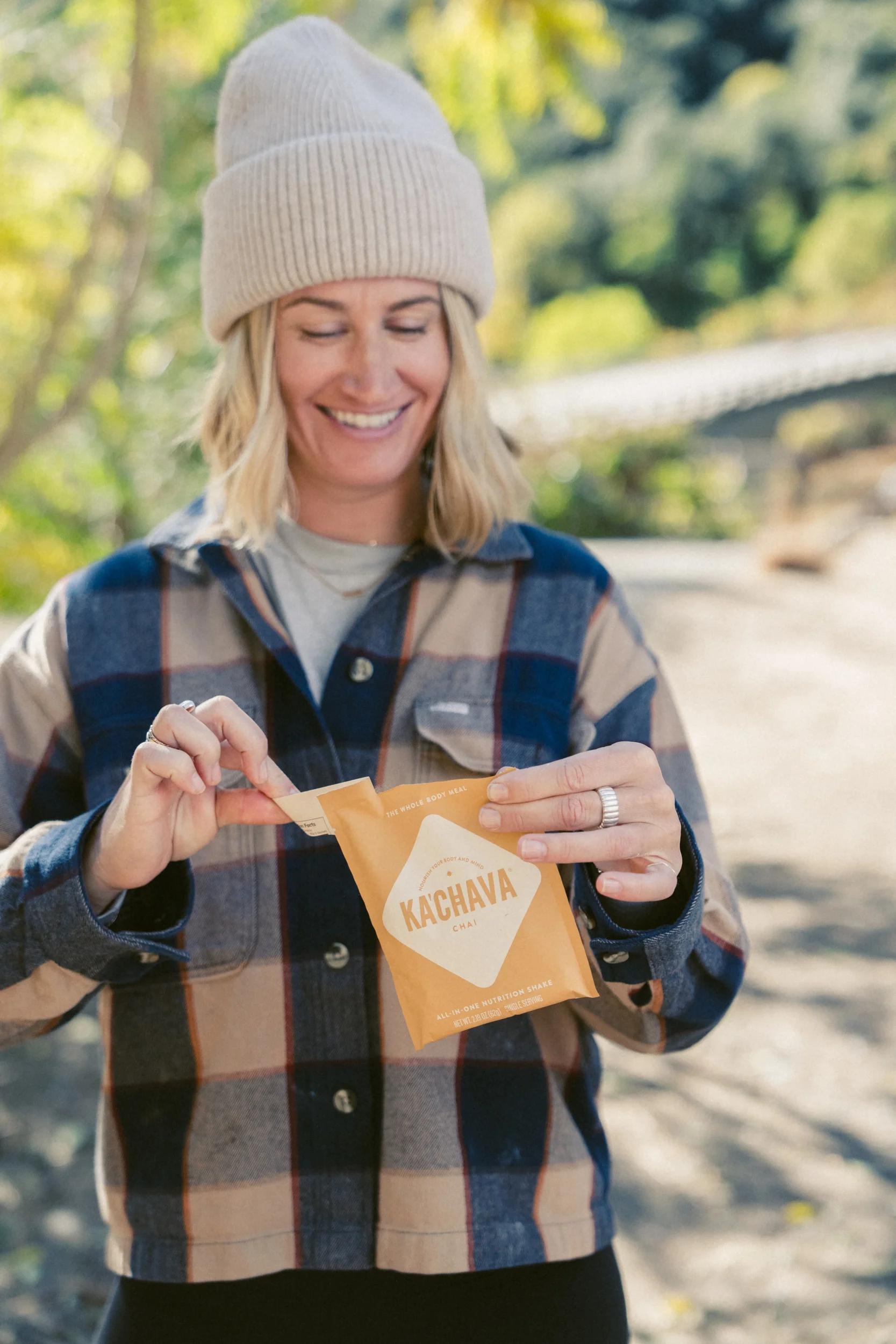"Rewilding" your gut could be key to optimal health
Plus, 5 ways to do it with food & habits

A decade ago, no one talked much about the gut microbiome—the collection of bacteria, yeast, and other organisms residing in your lower intestines. But now, it’s one of the most popular areas of health and nutrition research. Studies show that the composition of bacteria in your gut influences not only digestion, but your weight, mind, skin health, immune function, and more. Basically, if the microbes in your gut are in balance, chances are the rest of your body is too.
Generally, a healthy gut is one with a large variety of bacterial species in which the “good” bacteria outweigh “bad” pathogenic bacteria. The problem: Modern life—especially highly processed diets—are wreaking havoc on our collective gut microbiome, sapping it of its diversity and often fostering the growth of the wrong types of bacteria.
Consider this: Compared to the Hadza of Tanzania — one of the last remaining communities of hunter-gatherers, whose diet and lifestyle has gone mostly unchanged for thousands of years—people in the U.S. and other industrialized countries have about 40% less microbial diversity in the gut. This is a huge difference! And it likely correlates with the uptick in chronic disease we’ve seen in these countries as well.
The good news: Even if it’s not possible to completely replenish the biodiversity that was lost over centuries, you do have a lot of control over your gut microbiome. Certain diet and lifestyle habits can help you essentially “rewild” your gut and support overall health in the process.

Here are 5 gut-friendly habits to start implementing today:
1. Eat more fiber-rich plant-based foods

You don’t have to be a vegan to enhance the diversity and composition of your gut microbiome, but you do want to up your intake of veggies, fruits, nuts, beans, whole grains, and other minimally processed plant-based foods. That’s because plants are naturally rich in fiber, and fiber is the fuel your good gut bacteria need in order to proliferate. Greater intake of fiber also increases the diversity of species within the gut. (Most people in the U.S. only get half of the recommended 25-30 grams of fiber per day, so there’s lots of room for improvement!).
When your “good” gut bugs break down fiber, they release beneficial compounds called short-chain fatty acids (SCFAs) that help protect the intestinal lining.
Here are some fiber-rich plant foods to consider adding into your diet if you haven’t already (for more, check out this handy list from the Mayo Clinic):
- Avocado
- Raspberries
- Blueberries
- Pears
- Apples
- Peas
- Broccoli
- Brussels sprouts
- Sweet potatoes
- Squash
- Oats
- Quinoa
- Almonds, walnuts, pistachios
- Chia seeds, flax seeds, pumpkin seeds
- Beans, lentils, and chickpeas
2. Eat a greater variety of plants, too

Eating lots of broccoli and quinoa is great, but you don’t necessarily want to be eating the same exact combo of plant foods day after day. Research by the American Gut Project suggests that the main predictor of gut health is actually the variety of plant foods in someone’s diet. Scientists found that people eating more than 30 different types of plants per week had a healthier gut microbiome than people eating fewer than 10. The fiber in each type of plant food seems to feed a unique species of bacteria in the gut—and so eating a greater diversity of plants results in a greater diversity of gut bacteria.
Making an effort to eat seasonally can go a long way toward improving the diversity of your diet over the course of a year—but what about improving food diversity over the course of a day? Salads, smoothies, and stir-fries are great ways to cram lots of different plant foods into one meal, but there’s only so much shopping, chopping, and cooking you can handle as a busy human. When time’s tight, consider reaching for Ka’Chava, which packs over 85 superfoods, nutrients, and plant-based ingredients per serving, including 6 grams of fiber (21% of your daily value).
3. Eat less meat, sugar, and refined carbs

We’ve established that eating plants—and lots of them—is pretty great for optimizing the health of your gut microbiome. Eating loads of meat, sugar, and refined carbs, on the other hand, can push your ratio of good-to-bad gut bacteria in the wrong direction and negatively impact health.
One study from 2013 compared the effects of a plant-based, fiber-rich diet to a predominantly animal-based, meat-heavy diet. People on the animal-based diet experienced a significant increase in unhealthy gut bacteria , while plant-based dieters did not.
Excessive refined carb and sugar intake from foods like white bread, cereals, donuts, crackers, and soda has also been shown to negatively impact the gut by reducing microbial biodiversity and feeding “bad” gut bacteria.
4. Consume more probiotics

While eating more plant-based foods is the single most important thing you can do to promote microbial biodiversity in the gut, probiotics can also be beneficial (and they seem to be especially important during and after taking a course of antibiotics). There’s still a lot we need to learn about probiotics, though, so it’s good to obtain them from natural sources like yogurt or kimchi, or to take supplements containing bacterial strains that have been well-studied for their health benefits.
Ka’Chava contains probiotics such as Lactobacillus rhamnosus and Lactobacillus acidophilus, along with prebiotic fiber, that can help improve the ratio of good to harmful bacteria in your gut and increase the production of beneficial short- chain fatty acids (SCFAs).
5. Spend as much time in nature as possible

There’s more to gut health than what you put in your mouth! In fact, one of the biggest changes in day-to-day life over the last several centuries has been the drastic decrease in our contact with nature—plants, animals, dirt, fresh air, etc. Hunter-gatherer societies like the Hadza are in constant contact with the natural world, which contributes to their robust microbiome; while many modern societies are literally walled off from it.
But taking steps to boost your contact with the natural world—going for a hike, rock climbing, gardening, walking barefoot in the grass, playing with your dog, spending time with farm animals—can expose you to millions, if not billions, of beneficial microbes that benefit your microbiome and overall health. Scientists believe this is the main reason that children raised in households with dogs (who are constantly tracking in germs and dirt from outside) have stronger immune systemsthan children raised in more sterile environments.
Getting active while you’re outdoors is doubly beneficial, as research shows that physical activity can positively influence the composition of bacterial species in your gut microbiome.
The Bottom Line…

Your gut microbiome is a barometer for overall health. And even though many elements of our modern world—from poor diet to sedentary lifestyles—can negatively impact gut health, there are so many opportunities to replenish lost microbial biodiversity. Whenever you add fruits and veggies to your meal, choose to exercise outdoors instead of indoors, swap out refined carbs for fiber-rich complex carbs (or drink Ka’Chava as a meal replacement), or even wrestle with your dog, you’re taking actual steps to “rewild” your gut and get back to a place of true health.


